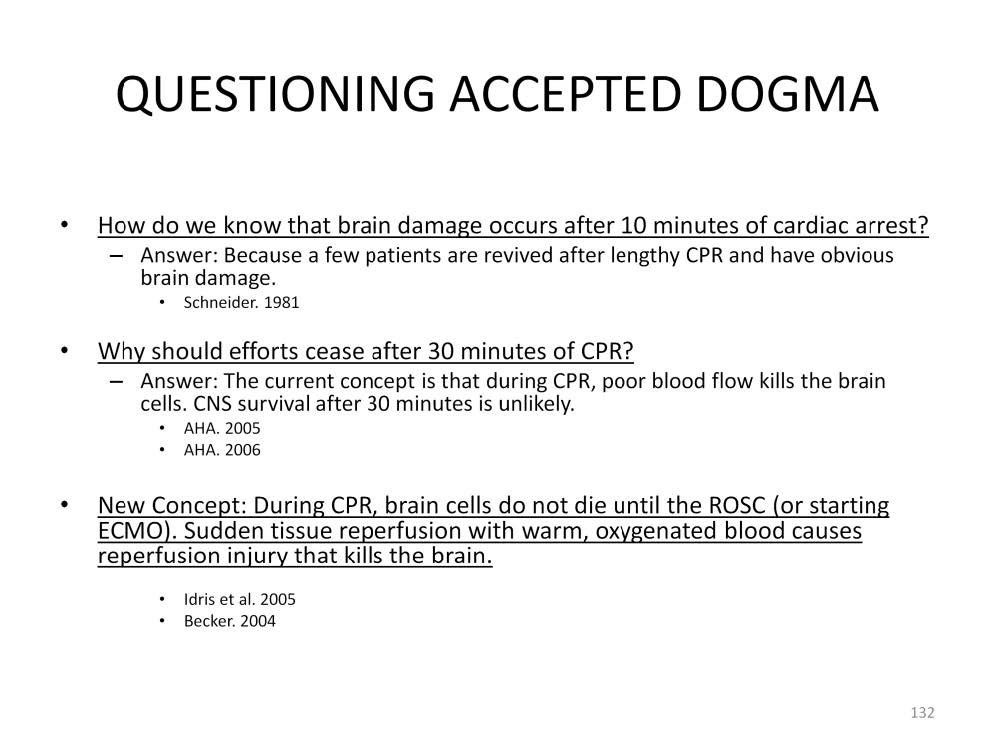
But what evidence is there that brain damage occurs after 10 minutes of cardiac arrest? And why should efforts cease after 30 minutes of resuscitation CPR? The answer is that a few patients are revived after lengthy CPR and have obvious brain and cardiac damage; also known as post-resuscitation syndrome.
The current concept is that during CPR there is insufficient blood flow and poor oxygen delivery to keep the brain and heart alive. CNS survival, in particular, is very unlikely after 30 minutes. This thinking reflects the AHA and PALS recommendations. However a new concept suggests that the brain and heart cells do not die during resuscitation CPR until the return of spontaneous circulation (or the implementation of ECMO). At that time, the sudden reperfusion with warm, oxygenated blood results in a reperfusion injury that ultimately kills the brain and heart cells.

Perfusion Theory is an educational platform for the Oxygen Pressure Field Theory (OPFT). August Krogh’s theoretical concept of the oxygen pressure field is explained and then applied to clinical applications in perfusion practice.